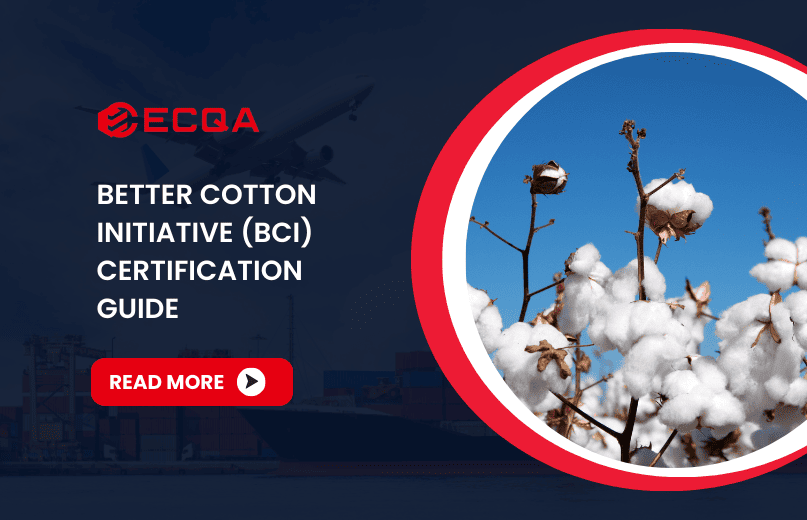
Better Cotton Initiative (BCI) Guide

The Better Cotton Initiative (BCI) is the world’s largest cotton sustainability program. Established in 2009, it was designed to transform the way cotton is grown and traded by making the production process more sustainable, efficient, and socially responsible.
Cotton is one of the most widely used raw materials in the textile industry, yet traditional cultivation practices have long been associated with high water consumption, heavy pesticide use, and poor labor conditions. BCI provides a structured framework that helps farmers adopt better practices while giving global brands and retailers access to responsibly sourced cotton.
Better Cotton Initiative (BCI) does not replace conventional cotton entirely. Instead, it focuses on guiding farmers to adopt progressive practices that reduce harm to the environment, improve livelihoods, and meet international sustainability expectations. The initiative currently operates in more than 20 countries, covering millions of farmers and a significant percentage of global cotton production.
Key Principles of the Better Cotton Initiative
The Better Cotton Initiative is built on a set of core principles that aim to balance environmental, social, and economic sustainability.
Environmental Responsibility
Better Cotton Initiative encourages practices that reduce the ecological impact of cotton farming. Farmers are trained to minimize pesticide use, optimize water consumption, improve soil health, and protect biodiversity. For example, drip irrigation systems and soil moisture monitoring tools are promoted to reduce wasteful water usage in arid regions.
Social Responsibility
The initiative emphasizes the well-being of workers. Farmers adopting Better Cotton Initiative standards must provide safe working conditions, prohibit child labor, and respect labor rights. Training programs also empower workers by building knowledge on occupational safety and labor fairness.
Economic Viability
BCI recognizes that sustainability must also be practical for farmers. By improving crop yields, reducing dependency on expensive chemical inputs, and accessing premium markets, farmers gain long-term financial benefits. The model ensures that sustainability is not only environmentally sound but also economically achievable.
Better Cotton Initiative Certification and Standards
To verify that cotton meets BCI standards, a robust certification process is in place. This process combines field-level training, third-party verification, and continuous monitoring.
Farmer Training and Capacity Building
Farmers undergo training on better agricultural practices, ranging from integrated pest management to efficient irrigation. Training is often delivered through local partner organizations that understand regional farming conditions.
Assessment and Verification
Independent auditors conduct on-site inspections to ensure compliance with BCI’s principles. These audits examine environmental practices, working conditions, and community impact.
Chain of Custody (Mass Balance System)
Unlike organic cotton, which maintains physical segregation from field to product, BCI operates a “mass balance” system. This means Better Cotton is mixed with conventional cotton in the supply chain, but the overall volume of BCI cotton sold does not exceed the volume produced under the program. The system allows wider scalability and quicker adoption across markets.
Global Recognition
Better Cotton Initiative is widely recognized by leading retailers and brands, making certification a strong value proposition for suppliers and manufacturers aiming to meet global sustainability standards.
Benefits of BCI Cotton for Businesses and Consumers
Adopting BCI cotton offers tangible benefits to companies, suppliers, and end consumers.
Supply Chain Transparency
Working with BCI-certified suppliers enhances traceability and accountability in the supply chain. Importers can demonstrate that their sourcing practices align with internationally recognized sustainability benchmarks.
Compliance and Market Access
For businesses selling into markets with strict environmental or labor regulations, sourcing BCI cotton reduces compliance risks. Retailers can also meet internal sustainability targets more effectively.
Competitive Advantage
Brands that highlight their use of BCI cotton can appeal to environmentally and socially conscious consumers. This positions the business as a responsible market player, improving reputation and customer loyalty.
Consumer Confidence
Shoppers today are more aware of how their clothes are made. BCI certification offers assurance that the cotton in their garments was produced with less environmental impact and better labor practices, without significant increases in cost.
BCI vs Other Cotton Certifications
Cotton certification is a diverse landscape, and understanding how BCI differs from other standards helps businesses make informed sourcing decisions.
BCI vs Organic Cotton
Organic cotton is grown without synthetic pesticides or fertilizers and requires strict segregation throughout the supply chain. While it represents the gold standard for chemical-free production, its adoption is limited by higher costs and lower yields. BCI, on the other hand, allows a more flexible mass-balance system that makes it easier for farmers and businesses to scale sustainability practices, even if it does not guarantee chemical-free farming.
BCI vs Fairtrade Cotton
Fairtrade certification focuses heavily on social and economic aspects, ensuring farmers receive fair prices and better trading conditions. While it also considers environmental standards, its primary mission is income equity. BCI shares some social objectives but takes a broader approach, balancing environmental impact, farmer training, and scalable adoption.
BCI’s Position in the Market
BCI occupies a middle ground between conventional cotton and stricter certifications like organic or Fairtrade. It is less restrictive, which allows for rapid uptake across global supply chains, while still ensuring significant improvements in sustainability. This makes it attractive to large retailers seeking both impact and scalability.
Beyond BCI, global textile sourcing often requires understanding other recognized standards such as GOTS, Oeko-Tex, and Fairtrade. For a detailed overview of how these certifications compare and what they mean for sustainable sourcing, explore our guide on 7 Key Textile Sustainability Certifications.
Adopting BCI-certified cotton is only one part of building a responsible supply chain. To ensure that sourcing decisions align with both certification requirements and your brand’s quality standards, independent verification is essential.
ECQA provides professional third-party inspection, audit, and compliance services across China and more than 40 coutries, helping businesses verify supplier credibility, monitor product quality, and reduce sourcing risks. With on-the-ground expertise and a deep understanding of global sustainability certifications, we support companies in meeting BCI standards and maintaining full supply chain transparency.

 Request Free Sample Report
Request Free Sample Report